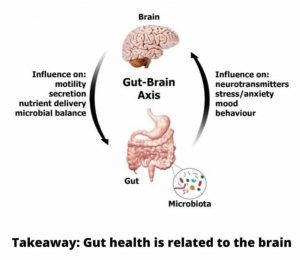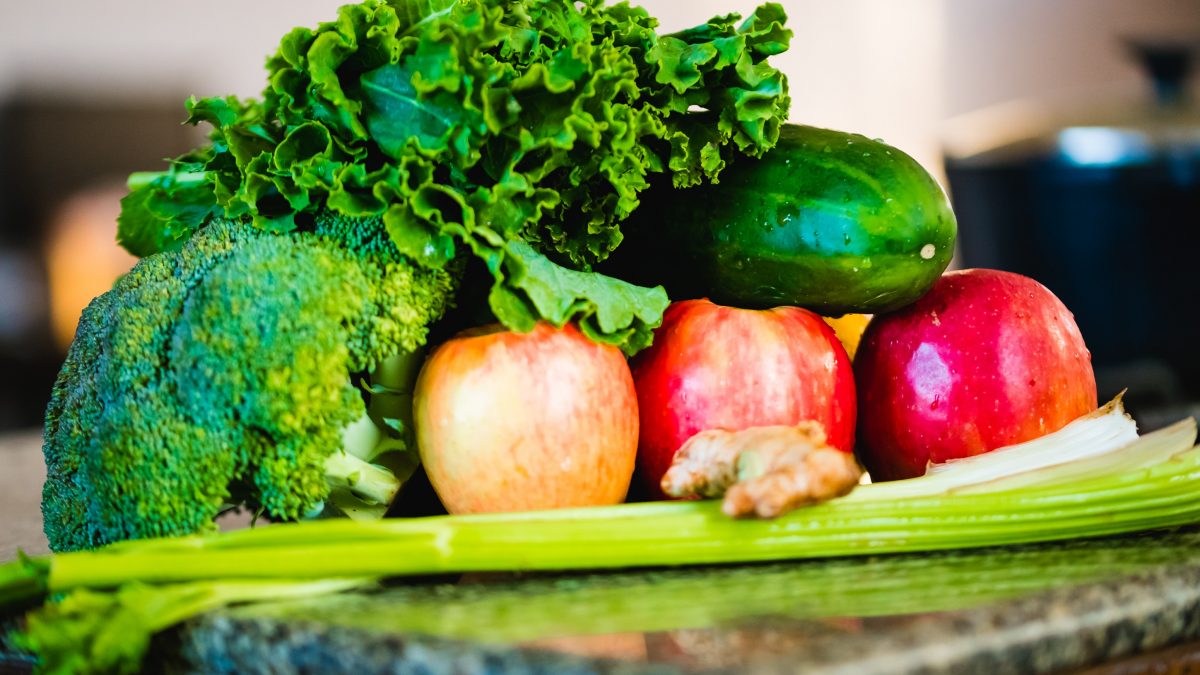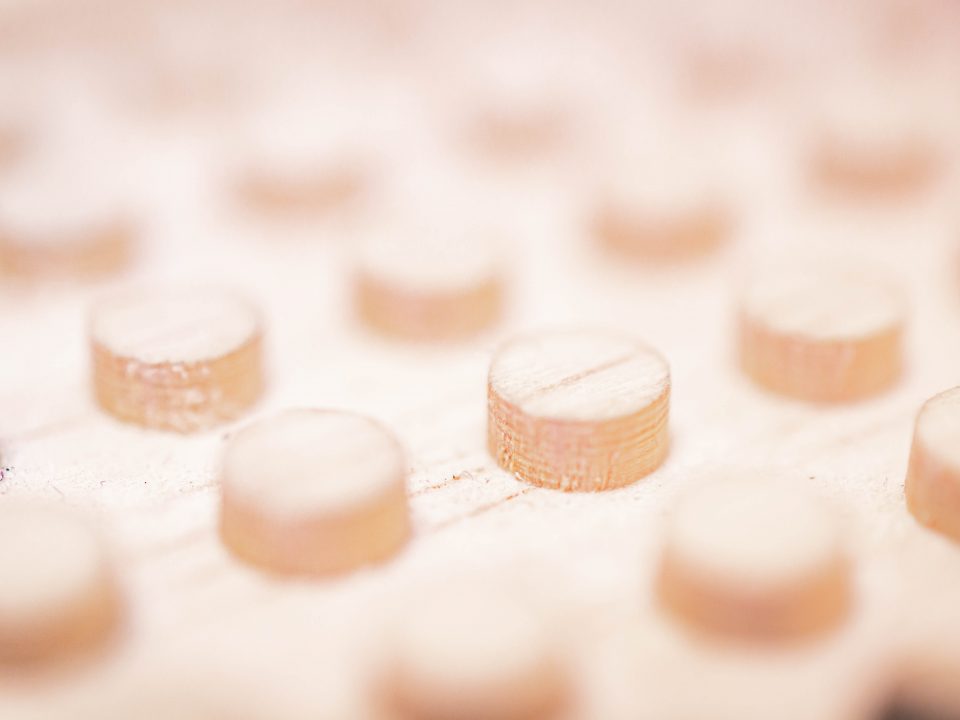Food and Mood

Coping with Anxiety
November 6, 2019
New Year, New You
January 21, 2020Food and Mood
If you are what you eat… what would you be based on what you ate last? 
Our diets and the foods we consume play a major role in our mental health just as much as our physical health. In the human body, all of the organs work together to provide us with life. That means our brains and gastrointestinal tract are working together with millions of nerves and neurons linking physical and chemical connections between our gut and brain. Our brain influences gut motility secretion, nutrient delivery, and microbial balance; while our gut influences the brain’s neurotransmitters, stress/anxiety, mood, and behaviors. The communication system between our gut and brain is called the gut-brain axis. Because these systems are linked and have an effect on one another, managing what you put into your stomach can have a lasting impact on your mental health.
What are you feeding your gut?
The Best Vitamins for Gut Health is:
- B Vitamins. Found primarily in fatty fish, dairy products, leafy greens, and meat, B vitamins help the body create red blood cells and gain energy from food. …
- Iron. Iron supports the good bacteria in the gut.
- Vitamin C.
- Selenium
- Vitamin D
- Zinc
- Magnesium
These vitamins are essential for gut health which is linked to good moods. There are numerous amounts of evidence from research that eating a healthy diet, one that includes plenty of fruits and vegetables and limits highly processed foods, can help reduce symptoms of depression. A nutritional deficiency causes a wide range of behavior problems linked to mental health. The World Health Organization has even projected that by 2020, depression will be the second leading cause of medical disability on earth. With fast food and highly processed foods being the main staple in the majority of all households this is not surprising. The most beneficial diet is eating non-processed foods– or, foods that grow from the earth such as fruits, veggies, and herbs. Did you know, cantaloupe is known for being a great anxiety reliever? Due to its high potassium content, this fruit can help normalize the heartbeat as well as stimulate the body to take in more oxygen to the brain; as you eat this melon your body relaxes and anxiety disappears. Just think of what benefits all the other natural grown fruits and veggies have in store for our bodies, mind, and spirit!
As more mental health practitioners embrace a holistic view of wellness, the role of food and diet is gaining more attention. As a mental health therapist, I always evaluate a client’s diet and the food they are consuming related to their mental health diagnosis. As a therapeutic holistic approach education on nutrition is a vital role in progress in the therapeutic treatment. If you think your food is impacting your mood start with a food assessment or keeping a food journal to help keep up with a correlation between what you are eating and what you feel to discuss with your therapist. Also, keeping track of activity and exercise routine also goes into effect with this holistic approach. Many traditional counseling programs do not educate practitioners about the role of food in mental health, it’s important to do some research on your own and ask your therapist to explore these issues with you.
Having a healthy lifestyle decreases depression, anxiety, and other mental health issues. Some healthy lifestyle tips include:
- Fill your plate with the rainbow: eating more colors throughout the day generally means you’re consuming an assortment of phytonutrients and antioxidants.
- Eat fresh fruits and vegetables
- Consume more whole grains instead of processed: quinoa, barley, millet, and brown rice
- Limit sugar consumption: If you have a sweet tooth, keep frozen bananas and berries on hand or Medjool dates or dark chocolate
- Keep healthy frozen soups/meals on hand
- Have plenty of healthy snacks available
What you eat directly affects the structure and function of your brain and, ultimately, your mood. Multiple studies have found a correlation between a diet high in refined sugars and impaired brain function and a worsening of symptoms of mood disorders, such as depression and anxiety. If you are experiencing any of these symptoms seek out a mental health professional to discuss concerns and receive an evaluation. Take it one day at a time and attempt to incorporate a new healthy choice into your diet each week. In addition to talking to a therapist and any dietary advisers, always consult a medical doctor before making major changes to your diet or if you have a medical condition that requires medication.
Taking your physical and mental health seriously is the first step. In order to make a change, it starts with you!
If we at Intrust can help you towards your goal of better mental health, give us a call at 606-676-0638. We offer a variety of counseling and case management services. Give us a call and Let’s Grow Together!
Maria Crabtree M.Ed.; LPCC-S
Related posts
Photo by Kouji Tsuru on Unsplash




